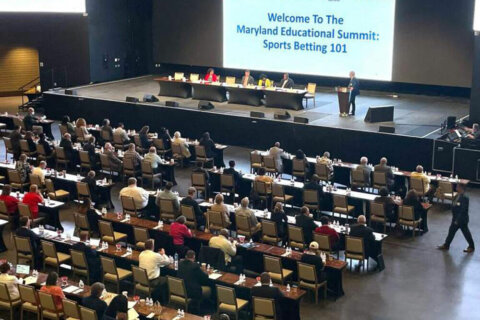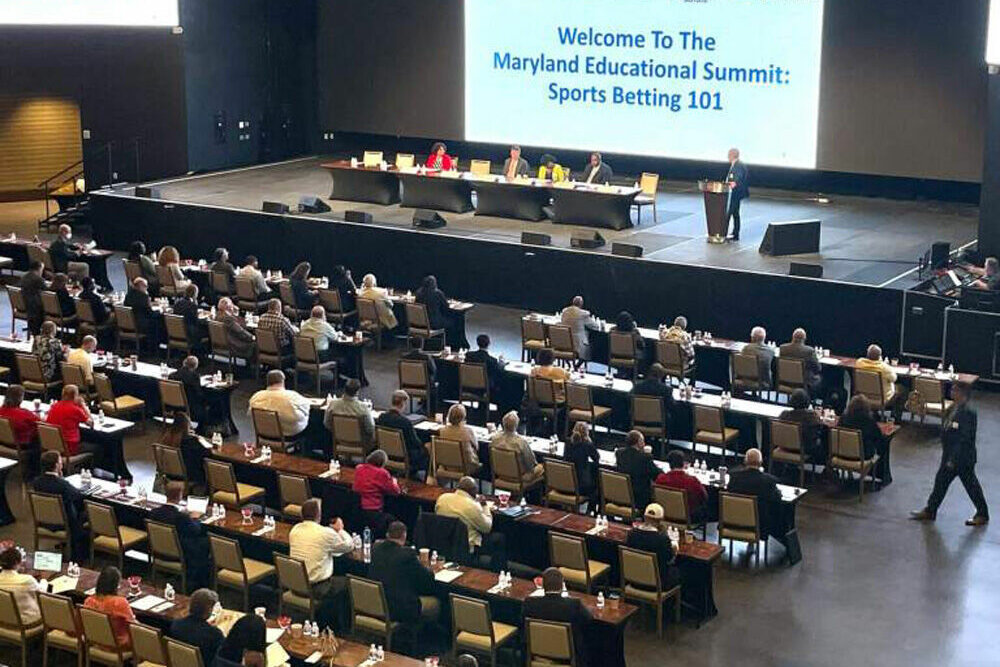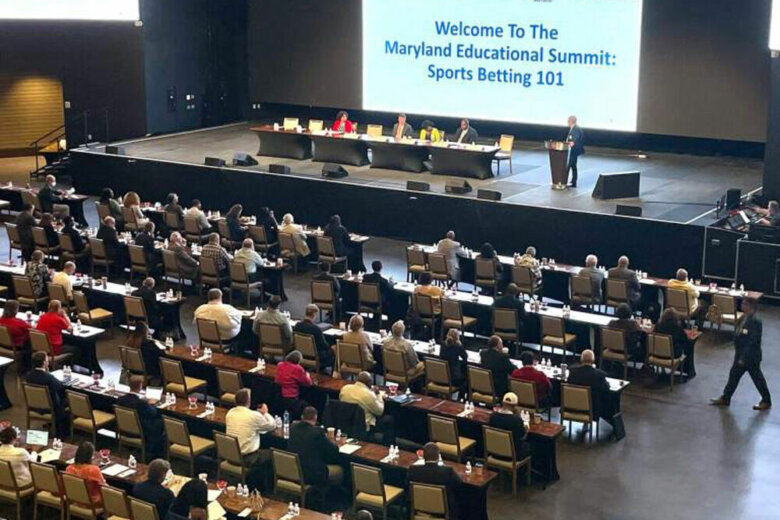This article was republished with permission from WTOP’s news partners at Maryland Matters. Sign up for Maryland Matters’ free email subscription today.


This content was republished with permission from WTOP’s news partners at Maryland Matters. Sign up for Maryland Matters’ free email subscription today.
Three years ago, the Supreme Court cleared the way for states to legalize sports betting.
Eight months ago, Maryland voters approved a sports gambling referendum.
And in April, state lawmakers created a Sports Wagering Application Review Commission, a panel that will decide who will be allowed to operate a legal sportsbook.
While the commission has yet to start its work, entrepreneurs who’ve been following the action will soon face a moment of decision: Roll the dice on a new industry as it takes shape — or hold tight to their chips.
“You have to be cautious,” said Michael Pollock, managing director of Spectrum Gaming Group, an industry research and services firm. “Having a license is not necessarily a ticket to riches. You’ve got to do your homework before you get into it.”
Pollock’s firm was at the center of an educational event on Tuesday that drew more than 200 people to the Live Casino in Anne Arundel County.
The “Sports Betting 101 educational summit” was billed as an opportunity for companies to learn about the legislation that will shape the new industry here, get an introduction to the “sports betting ecosystem” in Maryland, and get an explainer on the application process that will determine which potential vendors get a coveted license.
The event attracted business people, lobbyists, local government observers and others to a massive ballroom just off the casino floor. (A FanDuel betting window, empty for now, stands at the ready.)
Because of their standing in the industry and the way the legislation was drafted, it’s considered a given that the state’s casinos and the Maryland Jockey Club, the dominant player in horse racing here, each will have a sports betting operation — both bricks-and-mortar and online.
These established enterprises will most likely be in partnership with industry giants such as FanDuel, Draft Kings and William Hill.
The same holds true for the Maryland’s professional sports teams and off-track betting operators.
What’s less clear is the extent to which sports bars, restaurants and other businesses will try to make a go of it.
“We’re competing against the larger entities,” said conference attendee Joseph Gaskins, co-chairman at Maryland Business-Clergy Partnership. “Just a sports betting license, competing against MGM, competing against Maryland Live!, competing against Horseshoe, it’s a recipe for disaster.”
With the right “business mix,” he added, “you can create something that will work.”
Gaskins declined to identify his business partners, but said his group will seek a license.
In crafting sports betting legislation, state lawmakers were clear in wanting to create an environment where minority and female businesspeople can succeed, and that theme was stressed frequently during the panel discussions at the “summit.”
“We had to create a situation where the minority community was not just the target of marketing but has real opportunities to develop equity for their businesses [and] to own licenses,” said House Majority Leader Eric G. Luedtke (D-Montgomery).
In the lead-up to the referendum, gambling advocates sold the public on sports betting as a way to fund improvements to public education. Maryland must catch up with neighboring states, they added.
“We were losing a lot of revenue on big game days to West Virginia and Pennsylvania and even D.C.,” said Alyse Cohen, the owner of Long Shot’s, a sports bar and off-track betting location in Frederick.
“So this gives people in our local community an opportunity to keep state dollars in-state.”
Cohen is among those hoping to secure a license. Her lobbyist, Bruce C. Bereano, said she is the only female CEO in the state’s sports betting industry.
“Her facility, where I-270 and I-70 come together, is geographically critically located for the interests of the state of Maryland,” he said.
Like Gaskins and Cohen, the owners of the Riverboat on the Potomac, in Charles County, have also decided to seek a license.
They have partnered with Delmock Entertainment, an IT firm and a state-certified minority business enterprise since 2006, and with former WNBA star Marissa Coleman, a University of Maryland graduate.
“This is the next step in that process of diversifying our company,” said Tony Jones, Delmock’s chief strategy officer. “We knew what it took to be the type of [minority business enterprise] that the legislature was looking for.”
Tuesday’s event at Live was sponsored by Spectrum Gaming Group, the National Council of Legislators from Gaming States, the casino, and its owner, the Cordish Companies.
In the next few months, Gov. Lawrence J. Hogan Jr. (R) and the legislature’s presiding officers are expected to select seven people to serve on the “SWARC,” the newly created Sports Wagering Application Review Commission.
If the experience in neighboring states is any guide, Spectrum’s Pollock said, it is “quite probable” that the state will grant fewer licenses than are available — despite all the excitement surrounding the state’s nascent sports gambling industry.
“It’s going to take some time to grow it,” he said.
“It is very difficult. It is very expensive,” said Chad Beynon, senior gaming and lodging analyst at Macquarie Securities.
“People are losing a lot of money operating this on the future,” he added. “They’re betting on what’s going to happen down the line, and I think the market will dictate that.”








